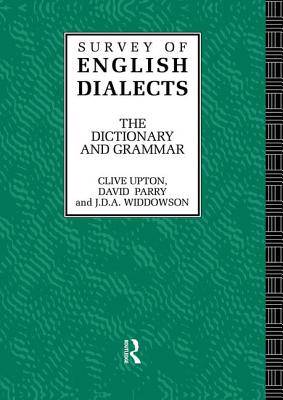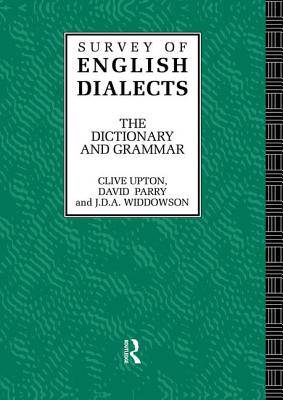
Bedankt voor het vertrouwen het afgelopen jaar! Om jou te bedanken bieden we GRATIS verzending (in België) aan op alles gedurende de hele maand januari.
- Afhalen na 1 uur in een winkel met voorraad
- In januari gratis thuislevering in België
- Ruim aanbod met 7 miljoen producten
Bedankt voor het vertrouwen het afgelopen jaar! Om jou te bedanken bieden we GRATIS verzending (in België) aan op alles gedurende de hele maand januari.
- Afhalen na 1 uur in een winkel met voorraad
- In januari gratis thuislevering in België
- Ruim aanbod met 7 miljoen producten
Zoeken
€ 105,45
+ 210 punten
Omschrijving
First Published in 1994. The Survey of English Dialects (SED) is the only detailed nation-wide dialect survey which has ever been conducted in England. The SED is a unique repository of data on the traditional dialects of England in the mid-twentieth century. This remarkable record is a valuable resource for scholars in the fields of British English dialectology, sociolinguistics, and English historical linguistics. The SED fieldwork was undertaken in predominantly rural communities in England in the middle of the twentieth century, at a time when social, domestic and working life was undergoing very significant changes. The SED is thus a record of speech which reflects a society different in many ways from today, and as such affords the possibility of comparison which is instructive to those engaged in all types of study of linguistics today.
Specificaties
Betrokkenen
- Auteur(s):
- Uitgeverij:
Inhoud
- Aantal bladzijden:
- 516
- Taal:
- Engels
Eigenschappen
- Productcode (EAN):
- 9780415755061
- Verschijningsdatum:
- 24/04/2014
- Uitvoering:
- Paperback
- Formaat:
- Trade paperback (VS)
- Afmetingen:
- 173 mm x 241 mm
- Gewicht:
- 861 g

Alleen bij Standaard Boekhandel
+ 210 punten op je klantenkaart van Standaard Boekhandel
Beoordelingen
We publiceren alleen reviews die voldoen aan de voorwaarden voor reviews. Bekijk onze voorwaarden voor reviews.









